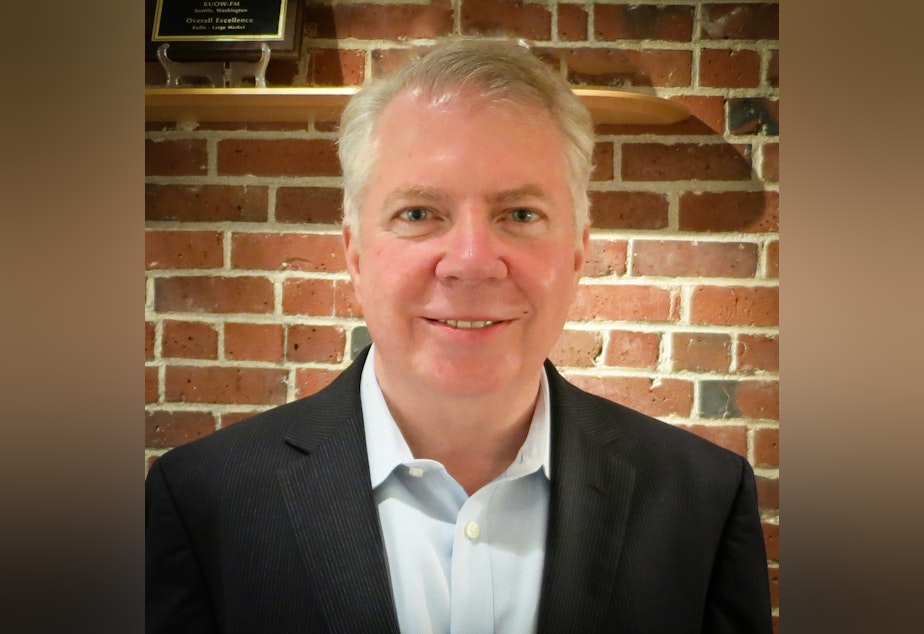Mayor Murray to Seattle's homeless: 'We want to work with you'

It’s been nearly eight months since Seattle Mayor Ed Murray declared a state of emergency around homelessness. But the situation seems to be as bad as ever, or worse.
Murray said the state of emergency has given the city access to more resources, local and federal. But he acknowledges the city still has a long way to go to solve the homelessness crisis.
The city is trying out some big ideas to decrease the number of people living on the streets, including shaking up the shelter system.
Seattle’s current shelter system doesn’t work for a lot of people experiencing homelessness. The barriers to entry are often too high: no pets, no partners, no storage for possessions.
Murray said that’s because the shelter system hasn’t gone through a rigorous contracting process for more than a decade.
“They’re basically designed for a different time and a different situation,” he said.
So what are we doing about it? Well, the city has taken a page from San Francisco’s book and is planning to build a Navigation Center, a low-barrier shelter that accepts people as they are and also accepts communities who want to stay together.
Murray said he supports the idea of having safe consumption sites in this new kind of shelter. That would involve having rooms with medical staff present where people who are in active addiction can drink or take drugs in a safe environment.
“I think it would be a great way to reduce death, disease, and offer more of an opportunity to get people into treatment.”
Unfortunately, Murray said, there’s a federal ban in place that prohibits such safe consumption sites. He hopes the city can find a way to work through that barrier.
But redesigning the shelter system is not going to fix the root causes of homelessness, Murray said.
He said more resources need to be directed up stream; one way to reduce the number of people on the street is affordable housing.
“One of the most important things Seattle can do this year is passing and renewing the housing levy,” Murray said.
But Seattle can’t do it alone, he said. Murray is still calling on the federal government to allocate more funds to help with the homelessness crisis. And he wants to see the state addressing a serious lack of addiction and mental health treatment.
“The city doesn’t do mental health and it doesn’t fund drug addiction. Those are county and state functions.
“Dealing with mental illness and dealing with this massive heroin epidemic is one of the ways we can get there. Affordable housing, not just at the city level but at the federal level, is one of the ways we get there,” Murray said.
And although it might seem impossible that the state and federal government will supply the amount of resources the mayor wants to see, he’s still optimistic.
“Sometimes I feel like I’m the last hopeful progressive in this city when I hear people say, ‘Mayor, we’ll never get the feds to change,’” he said.
“Well, you know I can remember as a young man when all of my friends were dying of HIV/AIDS, I saw a movement come together and turned a negligent federal government into a government that actually funded programs that didn’t end AIDS, but got it to a point where people can live and go to work with AIDS and HIV. I think we can do that with homelessness.”
Murray said his vision is to have enough housing for all homeless people in Seattle. He also said if housing is available it’s not acceptable for people to live outside, even if they want to.
Murray is calling on Seattleites to get involved and help solve the problem. He suggests people donate to organizations helping the homeless, educate themselves about the crisis and the people on Seattle’s streets, and pressure state and federal representatives to step up and help the city solve the crisis.
To those living on Seattle’s streets, Murray said: “We are trying everything we can to find a way to get the help that you need. I know we need to do more, we’ll continue to try to find a way to increase the amount of housing, to reconnect you with your family if that’s an issue, to try and get you the treatment you need if you’re addicted or mentally ill. We want to work with you.”

